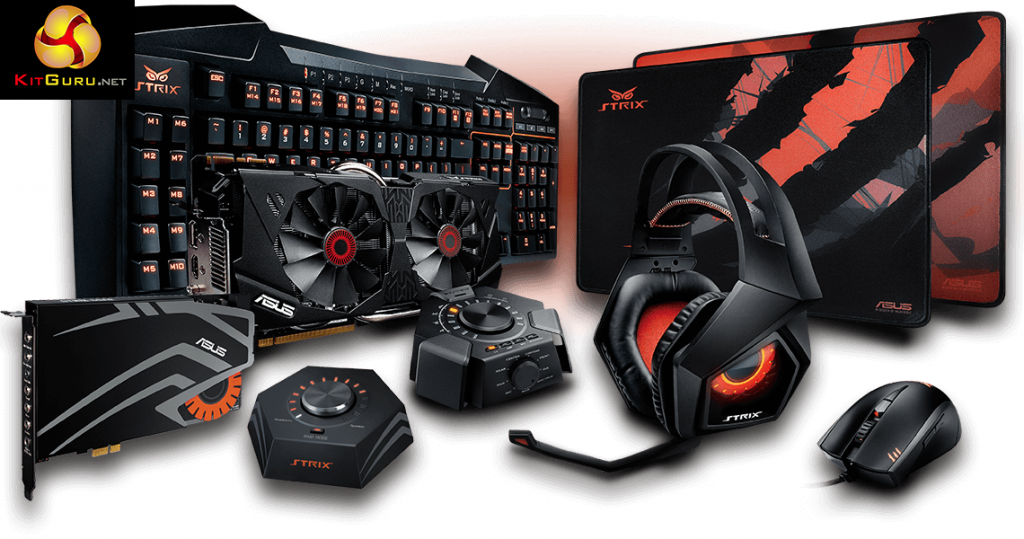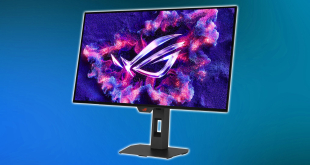The big question with any sound card review, is: is it worth it to upgrade your onboard audio to a dedicated add-in sound card? Based on our results, it is difficult to argue anything but a resounding yes. Not only has ASUS made a sound card that can boost the quality of what you hear, whether you are using a high-end, surround sound headset or one with a simple stereo field, but it also has a number of other interesting features that are worth exploring.
While you could argue that the version of the STRIX sound card with the bundled volume control is a superior package, for those that do not need that added functionality, the SOAR represents a much more economical version. What you receive otherwise is identical and in some outlets opting to drop the controller can save you almost £50. If you can do without, the SOAR offers much better bang for buck.
Audio quality with the Soar was most apparent with the higher quality stereo speakers; more so than it was with our traditional gaming headsets. This suggests there is some quality-headroom above the £80 or so price point of the hardware we used there. That means that while there are probably better sound cards we would suggest for true audiophiles, the Soar would be a great choice for those with above average quality headphones/speakers as much as those with more typical gamer hardware.
ASUS has given the Soar a brilliant piece of back-end software too. Not only does it have a huge number of options and tweakables, but it is impressively simple to use, with all choices on one panel and clear labeling making sure you are never lost.
Although we felt like the Sonic Radar Pro offers a somewhat unfair advantage to the user and the situations it is useful are limited, it was a novel option that certainly helps ASUS' sound card stand out from the competition.
Since it feels wrong to unanimously praise any product, if there was one addition we would like to see with the Soar, it is the inclusion of a 4pin molex to 6pin PCIE power converter, just in-case new buyers do not have the cable spare and are left frustrated.
All in all, ASUS has done a great job with its line of STRIX sound cards, but while there is some argument to be made for splashing out on the more expensive versions, for those on a budget or who can see no reason to pay almost double for an added volume control, the Soar is a fantastically affordable package.
It offers big improvements in audio over onboard solutions, which is more than you can usually hope for at this price point.
The ASUS STRIX Soar can be bought from Overclockers UK for £62.99 although we have found it at Alza for as little as £52.
Discuss on our Facebook page, over HERE.
Pros
- High grade components, good build quality.
- Attractive EMI shroud.
- Many, single-panel software suite options that are intuitive to use.
- Full support for up to 7.1 surround sound, 192KHz/24bit audio.
- Very affordable.
Cons
- Lacks volume control and RAID mode.
- No molex to PCIE power converter in the bundle.
KitGuru Says: The ASUS STRIX Soar is a great product in its own right, but considering its price point, it becomes a must have upgrade for any-gamer still having to deal with the failings of onboard audio.
 KitGuru KitGuru.net – Tech News | Hardware News | Hardware Reviews | IOS | Mobile | Gaming | Graphics Cards
KitGuru KitGuru.net – Tech News | Hardware News | Hardware Reviews | IOS | Mobile | Gaming | Graphics Cards






Just got the replacement through – EXACT SAME PROBLEM. Asus are total shit.
Same on windows 8.1 ! I thought my headphones where broken lol.
Does the new driver available on their site improves something??
They have driver for windows 10. Has the situation improved or you have got some other card?
I returned the card so sadly I wouldn’t know. Franky I’m going to always avoid Asus after this.
If you’re going to avoid companies after just one little oversight, you might as well quit technology altogether and go live in the woods. There are no faultless companies.
Kid, keep quiet as you don’t know what you’re on about. They do this all the time (just google it) and it took about 2 months and threatening to take them to court for them to resolve it. That isn’t a “little oversight”, that is incompetence verging on fraud.
Crosstalk is not caused from drivers, its from EMI from other hardware like a poor quality PSU or being put in-between two video cards. Putting the card in a DIFFERENT computer (as you did) just answered that. This is whats called an ‘underlying cause’. There’s very little a driver can do to stop crosstalk short of having the AMP run at a lower output voltage. Ironically the crosstalk is still there, but too low to be heard. Moving the card to a different PCIe slot furthest away from GPU’s and WIFI cards is a must.
Going to court would cost over $300 just in filing fees. If you lost you would have to pay their attorney’s fees as well which could be tens of thousands. For a $100 card?
Depends if they have an issue with dodgy fpga programming on the card or they clean up the audio with a software based filter.
Although the level of noise was so horrific it was probably just crap engineering with cheap hardware and no EMC testing.
That’s not how it works in the UK. one of the only good things we have is consumer laws. Court would be a £25 fee with all costs reimbursed after winning (and there is no chance any major company would show).
Their drivers are HORRIBLE for windows 10, I’m using asus strix raid dlx with gtx 1080 and evga platinum power supply on the other damn side of the case (I’m using Corsair Air 740 Case), and my gtx 1080 is liquid cooled so it has quite the shroud on it, and I have occasional static through headphones and sometimes my mic is staticy as all hell (unusable), and nothing I do fixes it. Before the most recent drivers this sound card resulted in crashes In my 6800k build and a friends AMD build so…… yeah….
Actually I just bypassed the link box with KINPS audio 3.5mm extensions, hopefully this helps, if it does I will update.